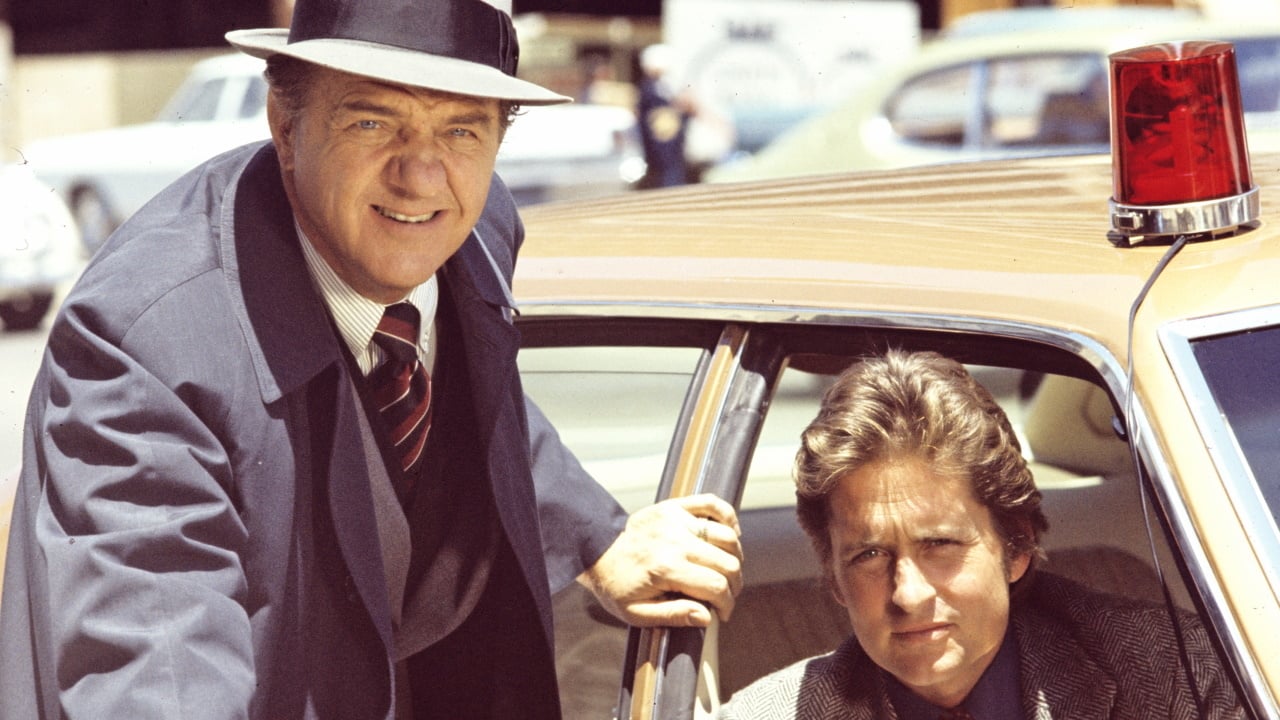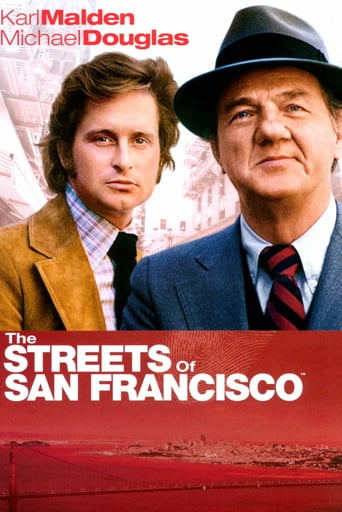

A brilliant film that helped define a genre
... View MoreI wanted to like it more than I actually did... But much of the humor totally escaped me and I walked out only mildly impressed.
... View MoreWhile it doesn't offer any answers, it both thrills and makes you think.
... View MoreEasily the biggest piece of Right wing non sense propaganda I ever saw.
... View MoreIt was not only that Karl Malden and Michael Douglas had good chemistry for four out of five seasons, they did. But it was a friendly generational rivalry in looks and style.Back in the 40s and 50s on the big screen and small detectives all looked like Karl Malden with the button down shirts and the obligatory fedora. But in 1972 when The Streets Of San Francisco made its debut Malden was dinosaur from another era. So without one big of dialog set you had a generation gap the second Michael Douglas in a hip outfit for the Seventies or as hip as a police force allows you to be. But there was no conflict, an occasional disagreement as the older cop taught the younger one. But it wasn't that Malden was always right. Occasionally Douglas taught Malden a thing or two about reaching the younger generation when it was necessary to solve a case.Douglas left the show in 1976 and Richard Hatch became Malden's new partner. But they never quite got it together as a team the way Malden did with Douglas.I liked the show, I liked the stories. But most of all Malden and Douglas were a joy to watch.
... View MoreThe Streets of San Francisco, as with most Quinn Martin series, is a standard crime drama. What makes the show better than most crime dramas is the father/son chemistry between Karl Malden as veteran Detective Lt. Mike Stone and Michael Douglas as the younger partner Inspector Steve Keller, the 70's, R&B-style theme music by Patrick Williams and the cool, pre-MTV opening credits.What really made this show better than most is the fact that Quinn Martin did spend the extra money and filmed the show entirely in San Francisco. In the 70s, most prime time TV shows were filmed in Los Angeles. I believe Hawaii Five-O was one of only a few prime-time dramas from the early 70s that was filmed on location.When Douglas left the series and Richard Hatch (from the original Battlestar Galactica, not the Richard Hatch from the first Survivor) replaced him, I quickly lost interest in the show. The chemistry between Malden and Douglas was very important to the show and Hatch had the thankless task of creating a character that in the long run was bland.Despite the show's final season, I'm certain that if I had the TV on and heard the drum beats of The Streets of San Francisco theme, I am very sure that I will probably spend the rest of the hour watching the show.
... View MoreYes, it's Michael Douglas. He played a role in this TV show from 1972 - 1976, and he was also joined by James Woods in one episode that was just on TV today! This show wouldn't so good if it didn't star an early Michael Douglas--it is what makes it interesting.
... View MoreThis was definitely a good show and it really fed off the dynamic of the older cop (Malden) and the younger cop (Douglas). The chemistry between the two was what made the show great and it would eventually be the springboard to the later success that Michael Douglas would have in later years. Also, this show is definitely overlooked when it comes to classic police dramas. Too bad it had to come out in an era when the super cop shows dominated the television landscape.
... View More